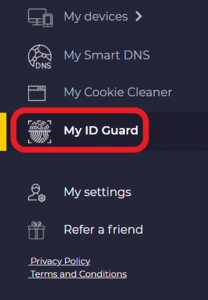Healthcare is and will likely remain an attractive target for hackers, who couldn’t pass on such rich data troves that aren’t usually inadequately protected.
Sure, regulations require healthcare providers to ensure that patient information is secure, available only to authorized personnel, and accessed only for official purposes. But each company decides what security measures to deploy to meet regulations.
The list of assets clinics must protect also includes before and after photos for plastic surgeries. But now, members of the REvil group threaten to publish celebrity images they’ve stolen. They warn it’s “not a completely pleasant sight.”
What lies behind The Hospital Group attack
In yet another ransomware example, The REvil group announced on their darknet webpage that they had obtained more than 900 gigabytes of patients photographs from The Hospital Group in the UK. They threaten to publish patients’ before and after photos, among other details.
The Hospital Group confirmed the REvil ransomware attack. They stated that some of their patients’ data had been accessed, but no payment details were affected. All customers were notified of the cyberattack.
The company also mentioned they have increased their digital security and are working with the local police, the National Cyber Security Centre, and the Information Commissioner’s Office.
One of the UK’s leading cosmetic surgery clinics, The Hospital Group specializes in bariatric weight loss surgery, breast augmentations, and nose jobs.

Exposing medical photos isn’t something new
According to reports, global healthcare cybersecurity spending will exceed $65 billion by 2021. Breaches can reduce patient trust and weaken health systems.
While cybersecurity is critical to patient safety, ransomware attacks on hospitals have increased in recent years, and hacker groups sure have been busy.
The privacy of your data is in your hands
While you can only pressure companies to protect your info from hackers, there’s a lot you can do to safeguard your privacy and all the data you generate.
Protect your digital identity
You don’t have to be a celebrity to be targeted in a cyberattack. Hackers can profit from selling information on anyone, so you have to protect your digital identity.
The first thing you can do is use a VPN and turn into a ghost online.
A good VPN encrypts your digital activities with the bulletproof 256-AES bit technology. This way, no one can spy on you. All your private conversations, financial details, and other valuable personal details stay safe from prying eyes.
Keep your email address safe
As data breaches are recurring matters, checking if your email addresses have been compromised is a good piece of advice.
With CyberGhost ID Guard, your email addresses constantly get checked against data-leaks, so you know your privacy hasn’t been breached.

Log into your CyberGhost VPN account, add all the email addresses you use, and let powerful algorithms do all the heavy lifting for you.
And if we’re on the topics of emails, you could benefit from learning the 5 ways to spot a phishing email so you don’t end up with malicious files on your devices.
Have your photos or other sensitive personal information ever been exposed without your consent? What would you do if that would happen?
Let me know in the comments below.



Leave a comment